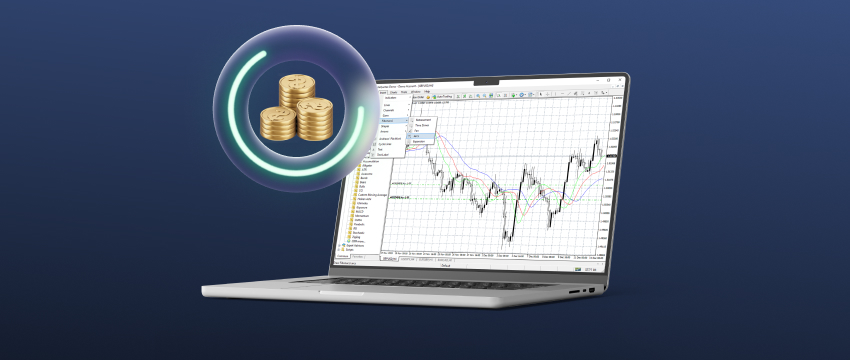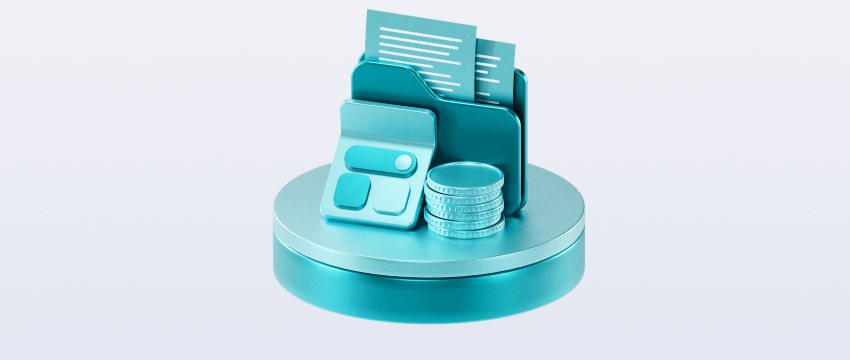Le forex market is the largest financial market in the world. More than $7.5 trillion is traded on average every day. There are a lot of forex traders, but not many of them are experts.
Forex traders fail for the same reasons that investors fail in other asset classes. In addition, the market offers traders very high leverage, and the relatively low margin required for trading currencies limits their ability to make many low-risk mistakes.
It feels exciting to start trading. The charts, de indicators, and the chance to make “quick money” all make it sound like a fun game. But there’s a harsh truth behind the glitz.
A large proportion of new traders give up after their first year. Some lose all their money. Others just get burned out. And some lose interest after too many losses. But the real reasons run deeper and they’re more common than you might think.
Let’s look at why most beginner traders give up on trading so soon.
Traders start trading without a plan
Whether you trade forex or any other asset class, the first step in becoming a good trader is to create and follow a trading plan. “Failing to plan is planning to fail” is a saying that is true for any type of trading.
Le good trader works according to the trading plan that includes risk management rules and specifies the expected return on investment (ROI).
Following a plan stratégique can help investors avoid some of the most common trading pitfalls; if you don’t have a plan, you’re selling yourself short in what you can accomplish in the forex market.
Lack of discipline
The largest mistake a trader can make is allowing their emotions to influence their trading decisions. Becoming an experienced forex trader means gaining a few big wins while learning from many smaller losses.
When a trader has many losses in a row, it can be difficult for them to stay calm, and it can also test a trader’s patience and confidence.
Trying to outperform the market or giving in to fear and greed can lead to cutting winners short and allowing losing trades to spiral out of control.
The best way to manage your emotions in trading is to follow a well-thought-out trading plan that helps you stay disciplined.
Failing to adapt
Before the market opens, make a plan for each trade. Think about different possible market situations and how you will react to each one. This can help you avoid big, unexpected losses.
Markets are constantly changing, bringing new opportunities and risks. There is no single strategy that works all the time. The most knowledgeable traders adapt their strategies as market conditions change.
Skilled traders plan for événements qui influencent le marché that are unlikely to happen and they are rarely surprised when they occur. By learning and adapting, they stay ahead and continuously find new ways to profit from the market.

Unrealistic expectations from traders
No matter what anyone says, you can’t get rich overnight by trading forex. Making consistent profits takes time and practice.
Trying to force the market to provide big returns usually means risking more capital than you should. Ignoring discipline and money management to chase unrealistic gains will only lead to regret.
Poor risk and money management
Traders should focus as much on managing risk as they do on developing a strategy.
Beginners often avoid using stop losses or other risk management tools, worried about being stopped out too soon. But as an account grows, protecting capital becomes even more important.
Diversifying positions and currency pairs, along with proper position sizing, helps protect a trading account from big losses. Many experienced traders split their accounts into different risk levels.
Only a small portion is used for high-risk trades. Most of their capital stays in safer positions. This asset allocation ensures low-probability events and losses cannot wipe out the account.
Overtrading and not learning
Beginners often spend 8 hours a day watching the market, hoping to find the “perfect trade.” But the amount of effort doesn’t equal the quality of decision-making.
In fact, the more time they spend, the more they doubt themselves. They change their strategies every week. They try to keep up with what’s “trending.” It becomes chaotic.
Traders who don’t keep a trading journal
Most new traders don’t keep a journal. Forex traders don’t review their trades. They don’t reflect on why something worked or didn’t. They move from one trade to another with no learning curve.

Traders manage leverage
Understanding Leverage in forex trading
Leverage allows traders to control large positions with small amounts of capital, but it’s a double-edged sword. It amplifies losses as much as it adds to potential gains.
Traders can leverage their accounts as much as 400:1 in the forex market. This can lead to huge gains in some cases and huge losses in others. Traders can take on significant financial risk. In many cases, it is better to limit leverage.
Most professional traders use about 2:1 leverage by trading one standard lot ($100,000) for every $50,000 in their trading accounts.
The risks of High Leverage
Le reason many forex traders fail is because they are undercapitalised in relation to the size of the trades they make.
Forex traders take on huge financial risk. Often, this is due to greed. Additionally, they are tempted by controlling large sums with small capital.
For example, with a 100:1 leverage, a price change of -1% can cause a 100% loss. Every loss worsens the problem. Even small losses matter. For example, getting stopped out early reduces your account balance. Consequently, it increases the leverage ratio even more.
Leverage not only magnifies losses, but it also makes transaction costs higher as a percentage of the account value.
For example, if a trader with a $500 mini account buys five mini lots ($10,000) of a currency pair with a five-pip spread and uses 100:1 leverage, they will also have to pay $25 in transaction costs.
Le higher the leverage, the higher the transaction costs as a percentage of the account value, and these costs go up as the account value drops.
En résumé
A lot of the factors that make forex traders fail are similar to those that make investors in other asset classes fail.
The best way to avoid some of these problems is to learn from experienced forex traders who can teach you the rules of the market, including risk and money management strategies.
Only then will you be able to plan your trades thoughtfully and set realistic return expectations that keep you from taking excessive risks for potential gains.
Understanding the macroeconomic, technique, et fondamentale needed to trade forex is just as important as having the right trading psychology.
However, one of the main factors that makes the difference between progress and stagnation is a trader’s ability to manage their trading account.
To manage your account well, you need to make sure you have sufficient capital, use the appropriate trade size, and limit financial risk by using smart leverage levels.
Avertissement : Ce document est fourni à titre informatif et éducatif uniquement et ne doit pas être considéré comme un conseil ou une recommandation en matière d'investissement. T4Trade n'est pas responsable des données fournies par des tiers référencés ou liés par hyperlien dans cette communication.tr




